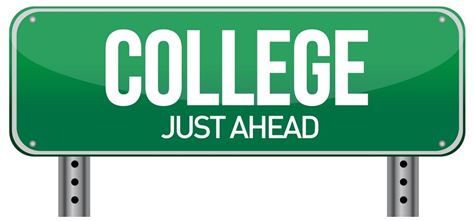Recommendation Letters in the Era of Covid-19
 Now, with mandated social distancing in our lives for the foreseeable future, all schools, big and small, are faced with the very same issue. While Skype or Zoom-based interviews are likely to increase in popularity and number, it’s also certain that letters of recommendation (LORs) will grow in importance to admission officers when they evaluate applicants. On top of that, a number of colleges will be test-optional next year, so in the absence of SAT or ACT scores, emphasis on LORs, among other factors, will increase.
Now, with mandated social distancing in our lives for the foreseeable future, all schools, big and small, are faced with the very same issue. While Skype or Zoom-based interviews are likely to increase in popularity and number, it’s also certain that letters of recommendation (LORs) will grow in importance to admission officers when they evaluate applicants. On top of that, a number of colleges will be test-optional next year, so in the absence of SAT or ACT scores, emphasis on LORs, among other factors, will increase.
The admissions offices of almost all colleges – but not most of Florida’s state universities – require a recommendation letter from your counselor or somebody else in your school’s administration who knows you well, along with another from one or two of your core academic teachers. We strongly recommend asking two junior teachers who know you well, especially if one of them teaches a course related to your intended major. For example, STEM majors should ensure that one recommendation is from their current math or science teacher. Another consideration is that English and history teachers tend to be the best writers. But, overall, you want to ask teachers who can speak to exactly who you are as a student in very specific terms, using examples to back up their observations. And, as we noted last May, “LORs make a difference in admission decisions: The National Association of College Admission Counseling’s 2018 State of College Admissions Report discloses that over half of responding college admission officers reported that both counselor and teacher recommendations were of considerable or moderate influence in admission decisions – two factors among only seven that garnered over 50% scores for considerable or moderate influence.” Imagine how that influence has increased under current circumstances! We’re certain that our counsel to you below is timelier than ever.
 The best time to begin asking your counselors and teachers for LORs is shortly after these first weeks of the current transition to remote learning. While they won’t be due for months, juniors who want the best possible recommendations should be requesting them very soon because that will give recommenders plenty of time over the summer to craft the letters. Asking now shows courtesy to the recommenders and ensures that your request doesn’t come at a time when they’re too busy.
The best time to begin asking your counselors and teachers for LORs is shortly after these first weeks of the current transition to remote learning. While they won’t be due for months, juniors who want the best possible recommendations should be requesting them very soon because that will give recommenders plenty of time over the summer to craft the letters. Asking now shows courtesy to the recommenders and ensures that your request doesn’t come at a time when they’re too busy.
In addition to staying fully engaged in your online classes, here’s what we advise you to do, in the order shown, to make recommendation letters strong and anecdotal (containing the writer’s personalized observations about you that reflect your intellectual curiosity, special accomplishments, particular projects, collaborative nature, helpfulness to classmates, etc):
- Contact your intended recommenders by email or phone and request an appointment to speak with them via Skype or Zoom at a time that’s convenient for them.

- Open the conversation by thanking each intended recommender for agreeing to talk.
- Briefly explain that getting into college is important to you so that you can pursue your dreams, your goals, your ambitions – and tell him or her what those are.
- Tell the intended recommender why you’ve chosen to speak with him/her, specifically, and, assuming that you’re speaking with a teacher, here’s a good way to do that: “Of all my classes, I’ve enjoyed yours the most. I’ve learned a lot from you, and I think that you’re a great teacher who’s challenged and brought out the best in me.”
- Then, tell the intended recommender, “I’d be honored if you’d agree to write a strong recommendation letter for me to help me get into college, and while it’s not needed until applications are due next fall, I wanted to give you plenty of time to do it.”
- Email each recommender a résumé of your activities and achievements, because that will better allow him or her to present you as a whole person.
- To help teachers write more anecdotal recommendations, also email each one a bulleted list highlighting your special memories from their class (e.g., the impact of particular assignments on your thinking, your impact on your classmates).
- Share with each recommender a list of colleges to which you’re planning to apply and their deadline dates.
- Once you enter a recommender’s contact information in an application (Common App, Coalition App, college’s own application, etc.), an automatic request for a letter of recommendation will be generated and emailed by the application server. Your recommenders will likely submit their recommendations through the online portals of the various applications you’re using – or through Naviance or Scoir, if your school uses those resources. Most applications have a portal through which you can check the status of each letter of recommendation, and the opportunity to send a follow-up request if a letter hasn’t yet been sent.
As we noted above, LORs were important in admission decisions even before the Coronavirus made in-person interviews problematic, and they’re likely to increase in importance now. And as we closed our post last May, “You’re on the path toward your college education. Now’s the time to positively assert yourself as you prepare to apply to colleges. Demonstrate that you have the personality and desire to make the process work smoothly for yourself. You’ll be glad you did.”

